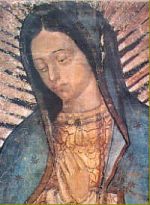Make your gift today!
Help keep Catholics around the world educated and informed.
Already donated? Log in to stop seeing these donation pop-ups.
First Anglican ordinariate established in Britain
January 15, 2011
The Vatican has established the first personal ordinariate for Anglicans entering the Catholic Church.
On January 15, as 3 former Anglican bishops were ordained to the Catholic priesthood, the Congregation for the Doctrine of the Faith released a statement establishing an ordinariate for England and Wales.
Rev. Keith Newton, one of the three former Anglican bishops, was named by Pope Benedict XVI as the first ordinary. The Vatican statement said that he, along with the other former Anglican bishops, “will oversee the catechetical preparation of the first groups of Anglicans in England and Wales who will be received into the Catholic Church together with their pastors at Easter, and will accompany the clergy preparing for ordination to the Catholic priesthood around Pentecost.”
Rev. Newton said that the appointment was “not an honor that I have sought or expected but I pray that God will give me the wisdom and grace to live up to the trust the Holy Father has placed in me.”
The personal ordinariate is a new ecclesiastical structure, established by Pope Benedict with his apostolic constitution Anglicanorum Coetibus as a means of welcoming those Anglicans who wish to enter the Catholic Church. The ordinariate will allow Anglican communities to maintain their distinct liturgical and pastoral traditions, while being fully in communion with the Holy See.The Congregation for the Doctrine of the Faith explained:
A Personal Ordinariate is a canonical structure that provides for corporate reunion in such a way that allows former Anglicans to enter full communion with the Catholic Church while preserving elements of their distinctive Anglican patrimony. With this structure, the Apostolic Constitution Anglicanorum coetibus seeks to balance on the one hand the concern to preserve the worthy Anglican liturgical, spiritual and pastoral traditions and, on the other hand, the concern that these groups and their clergy will be fully integrated into the Catholic Church.
The ordinariate will provide pastoral care for former Anglicans entering the Catholic Church in England and Wales, stretching across the lines of existing dioceses. The new structure will be known as the Personal Ordinariate of Our Lady of Walsingham, under the patronage of Blessed John Henry Newman.
The ordinary exercises many of the administrative powers of a bishop. However Rev. Newton, who is married, will not be consecrated as a bishop. The Vatican statement pointed out that while married men can sometimes be ordained to the Catholic priesthood, and the ordinariate allows for married priests, the Catholic Church never consecrates married men to episcopal office. All three of the former Anglican bishops who were ordained as Catholic priests on January 15 are married.
During the ordination, Archbishop Vincent Nichols of Westminster, who presided at the ceremony, said: “We offer a warm welcome to these three former bishops of the Church of England. We welcome those who wish to join them in full communion with the Pope in the visible unity of the Catholic Church.”
For all current news, visit our News home page.
Further information:
- Erection of a Personal Ordinariate for England and Wales (VIS)
- Pope Benedict establishes world’s first ordinariate (Catholic Herald)
- Press Statement from Keith Newton - First Ordinary (Total Catholic)
- Ordinariate: Statements (Ordinariate Portal)
All comments are moderated. To lighten our editing burden, only current donors are allowed to Sound Off. If you are a current donor, log in to see the comment form; otherwise please support our work, and Sound Off!
-
Posted by: -
Jan. 15, 2011 3:23 PM ET USA
Actually, 'the Reverend' is an adjective and not a title (well, the 'reverend' bit is), and is never properly used before a bare surname. Therefore, 'the Revd John Smith', who may be referred to as 'Father Smith'. For diocesan/secular clergy, the use of the title 'Father', formerly reserved for religious, only came in in English-speaking countries in, I think, the late nineteenth century. It still isn't used for them in some non-English-speaking countries (such as the German-speaking ones).
-
Posted by: bnewman -
Jan. 15, 2011 2:17 PM ET USA
I do not think most readers understand the leap of faith the 3 Anglican Bishops are making. After all they have just quit a conforatble, prestiguous and rewarding job for life. They are no longer bishops. Everything is invested in a doubtful future. As married men they cannot be catholic bishops. Will the new ordinariate "fly?" That remains to be seen. After all when Newman converted his life was not, on the surface, very easy.We should admire their courage.
-
Posted by: garedawg -
Jan. 15, 2011 10:53 AM ET USA
If I recall, in formal writing, a priest is referred to by the title "Rev.", but if you address him to his face, he is called "Father". So, if you were sending a letter to a priest, on the outside of the envelope you would put "The Rev. So-and-So" or "The Very Rev. So-and-so" in the case of a bishop, but the salutation inside would say, "Dear Father So-and-So" or "Your Excellency" for a bishop. Someone correct me if I'm wrong.
-
Posted by: filioque -
Jan. 15, 2011 10:47 AM ET USA
"Rev." is the formal and proper honorific. "Father" is informal.
-
Posted by: stpetric -
Jan. 15, 2011 9:30 AM ET USA
"Rev. Newton"? Is there some reason you're denying him the honorific "Father"?







